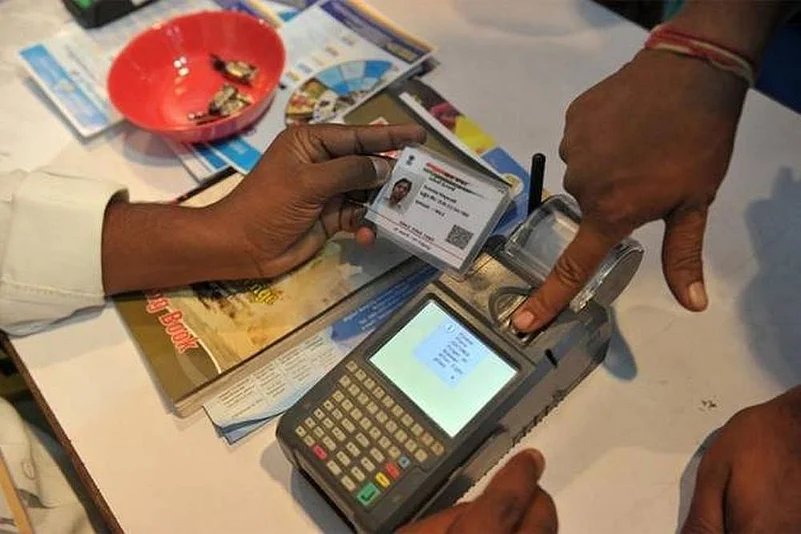Welcoming the Supreme Court's Aadhaar verdict, the Unique Identification Authority of India (UIDAI) on Wednesday termed the judgement as a victory.
Welcoming the "historic, landmark" Supreme Court judgment, Aadhaar-issuing authority UIDAI said the Apex Court has upheld the validity of the biometric identity system that neither creates a surveillance state nor violate privacy.
"It has been established by the judgement that Aadhaar is not for the state surveillance as profiling is not possible using the minimal data that Aadhaar has. There are sufficient safeguards to disallow any abuse," Unique Identification Authority of India (UIDAI) said welcoming "the historical and landmark majority judgement" of the Supreme Court of India.
Advertisement
"Aadhaar Act has withstood the judicial scrutiny and the purpose of the Act is legitimate," it said.
UIDAI said the court has upheld the constitutional validity of Aadhaar and accepted that there is a legitimate state aim in the 12-digit biometric ID.
"Aadhaar as an idea is fully upheld that it does not create a surveillance state and does not violate privacy," it said in a statement. "The verdict Aadhaar is a tool of empowerment of the marginalised sections of the society."
The UIDAI CEO Ajay Bhushan Pandey told PTI that the 4:1 apex court judgement announced Wednesday is in favour of Aadhaar.
"It is 4:1 judgement in favour of Aadhaar. The court has declared Aadhaar constitutionally valid. It is a money bill. It can be used for PAN card. It empowers poor and marginalised section. Aadhaar can be used for subsidies and government schemes so that there is no leakage of government funds. It can be used for income tax so that tax evasion and black money can be curbed," Pandey said.
Advertisement
The Supreme Court on Wednesday declared the Centre's flagship Aadhaar scheme as Constitutionally valid. The apex court's five-judge Constitution bench headed by Chief Justice Dipak Misra said Aadhaar is meant to help benefits reach the marginalised sections of the society and takes into account the dignity of people not only from personal but also from community point of view.
Justice Sikri struck down Section 57 of Aadhaar Act permitting private entities to avail Aadhaar data and ruled that Aadhaar authentication data cannot be stored for more than six months.
Reacting to the court order of annulling section 57, Pandey said: "The court has restricted private usage (of Aadhaar) without any backing of Law. Same has been suggested by Justice Shrikrishna Committee".
The top court said Aadhaar is serving much bigger public interest and Aadhaar means unique and it is better to be unique than being best. There were three sets of judgements pronounced on the issue.
The first of the three verdicts was pronounced by Justice A K Sikri, who wrote the judgement for himself, CJI and Justice A M Khanwilkar. Justice Sikri said robust data protection regime has to be brought in place as early as possible.
The Supreme Court added that CBSE, NEET, UGC cannot make Aadhaar mandatory and it is not compulsory for school admissions. The apex court also said the linking of Aadhaar for opening of bank accounts and for mobile connections is not mandatory.
Advertisement
Cyber Security expert and Indian Infosec Consortium CEO Jiten Jain said that the custodians and interpreters of constitution have delivered a wonderful judgement on Aadhaar, which has taken into account privacy concerns of all stakeholder specially citizens.
"I am happy that Aadhar Act has been upheld and private sector entities have been virtually barred from collecting or linking Aadhar to any services they provide. (The) Supreme court has made it clear that governments can use Aadhaar to serve society but cannot use it to become dangerous master," Jain said.
PTI




















